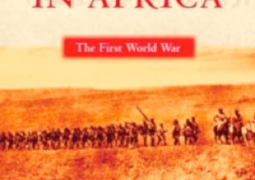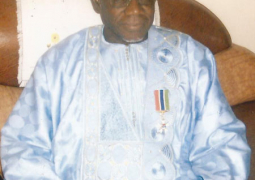
The
New Gambia Movement, out to transform The Gambia into a politically enlightened
and empowered Family Nation, on Saturday donated bags of rice, sugar, oil and
packages of biscuits to Serrekunda mosques and the Catholic Church called
Charity Sisters.
The
New Gambia Movement’s primary objective is to help the needy and
less-privileged in society, as well as to transform The Gambia into a
politically enlightened and empowered Family Nation in which “the people are
the parents, the children and the government.
In
her remarks on the occasion, Nahla Tambedou of the New Gambia Movement (New
Gambia) said that after 30 years of the First Republic and 22 years of
dictatorship, The Gambia remains mired in the irreconcilable contradictions of
the colonial legacy.
“The
colonial encounter brought a new political system (the nation state) and
transposed it upon our traditional political culture.
“At
independence in 1965, a western parliamentary system was superimposed on our
traditional African perceptions and understandings of the meanings of
government and leadership.”
She
continued: “We intend to help transform The Gambia into a nation of enlightened
and empowered citizens who will be able to democratically exert control over
their leaders, and who will never allow themselves to be marginalized,
oppressed, or denied their rights as Gambians and human beings with certain
inalienable rights.
“Political
power rightfully belongs to the people. But the people can only enjoy and
exercise that power if they are adequately knowledgeable in key aspects of the
political doctrines and institutions affecting their lives.
“It is, therefore, a cruel paradox that
governments whose existence cannot be imagined without the people would turn
around and reduce the people into powerless and oppressed nonentities without
any agency to assume their rightful status in society.”
Nahla
said the New Gambia Movement places human and intellectual resources and
energies at the forefront of its national project, with a view to building popular
political capacity and delivering sustained benefits to the nation.
“We
are strongly convinced that as long as the people of a country remain unaware
of and, therefore, unable to fully exercise their legitimate power over their
government, they will remain vulnerable to the machinations of unscrupulous
politicians and tin pot despots like the one we have suffered for the last 22
years.”
Development
is not necessarily about building infrastructures, though we certainly
appreciate the importance of infrastructure as part of development,” Nahla
said. “We believe that development is
more about building minds and empowering people.”
The
result has been a tragic brain drain,
but according to Nahla: “Our brilliant minds are driven off into exile
or choosing to relocate to distant lands where our knowledge and skills are put
to use in the service of societies only too happy to increase their own fund of
intellectual resources.
She
added: “Meanwhile, our national mind is starved, our creativity is stifled and
our development arrested.”
Pierre
Gomez, a member of the movement, also said that The New Gambia Movement
recognizes that bringing about the kind of positive fundamental transformation
the people need in The Gambia, requires much more than a mere change of
individual leadership or government, however important that is.
Over
50 years of independence, said Gomez, The Gambia’s last two governments had
done nothing to correct this anomaly.
The
overriding consequence is that most Gambians remain politically disempowered
and unaware of the crucially important differences between constitutional
authority and autocratic rule of the colonial and pre-colonial sort.
“These
political misnomers, used over and above their simple linguistic inferences,
carry corruption-enhancing and power-abusing connotations that are exploited by
people in power for their own selfish interests and to the detriment of the
Gambian people,” said Gomez.



